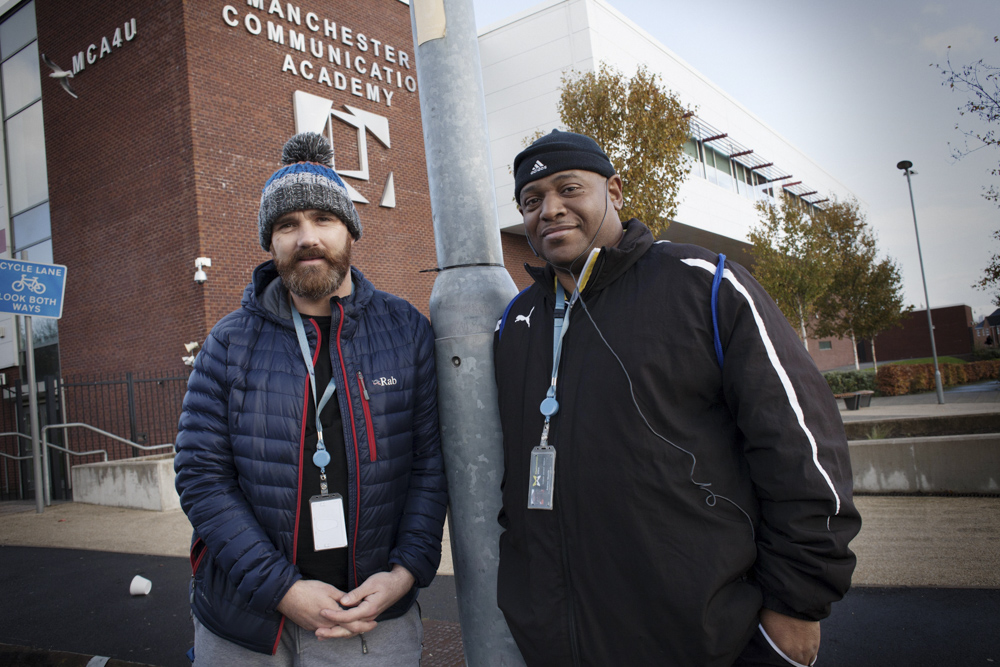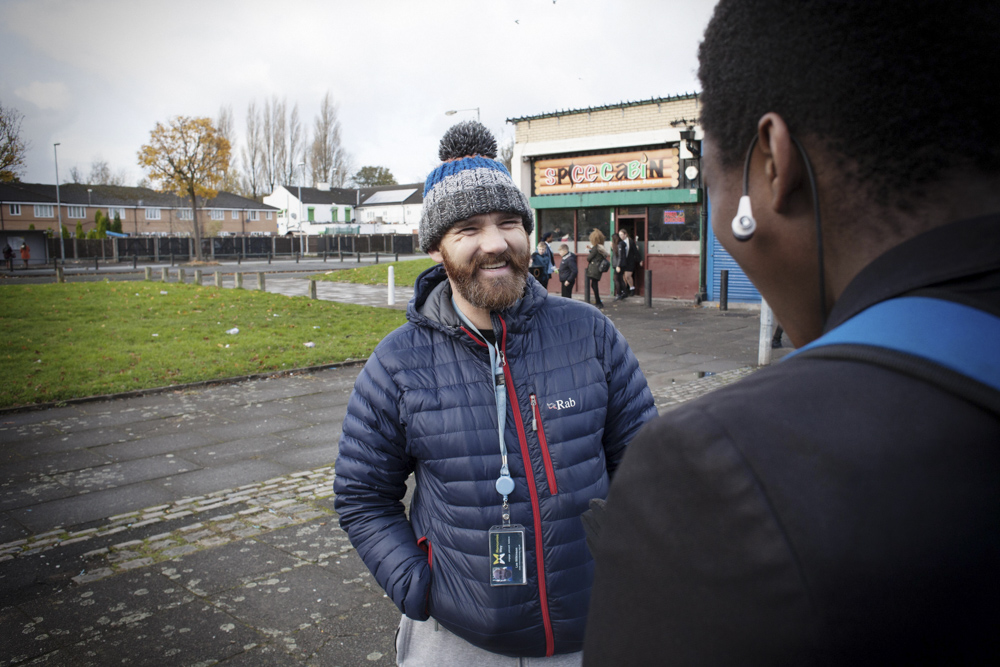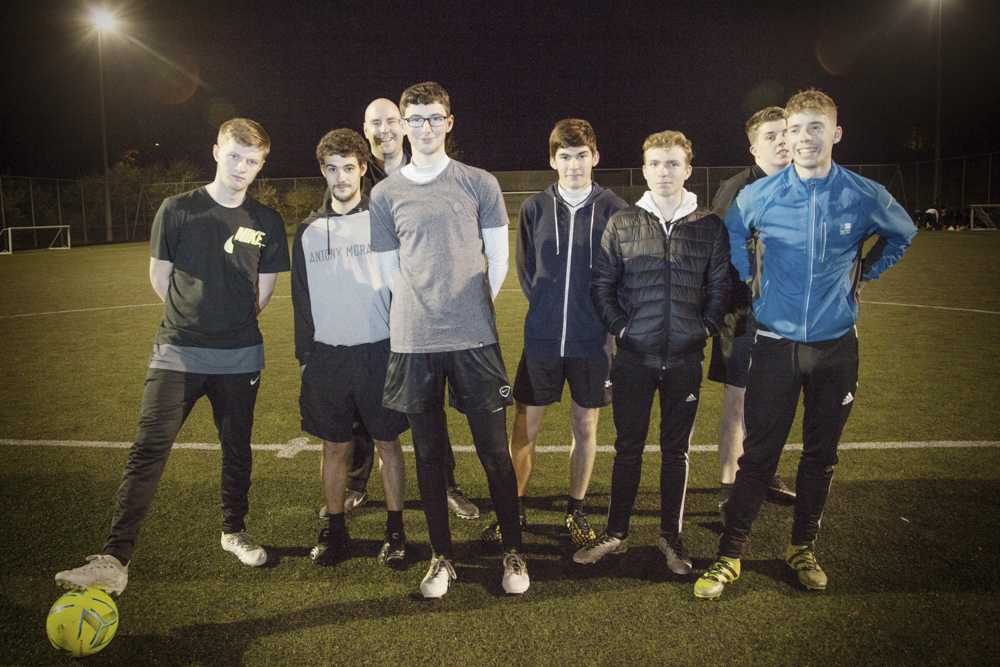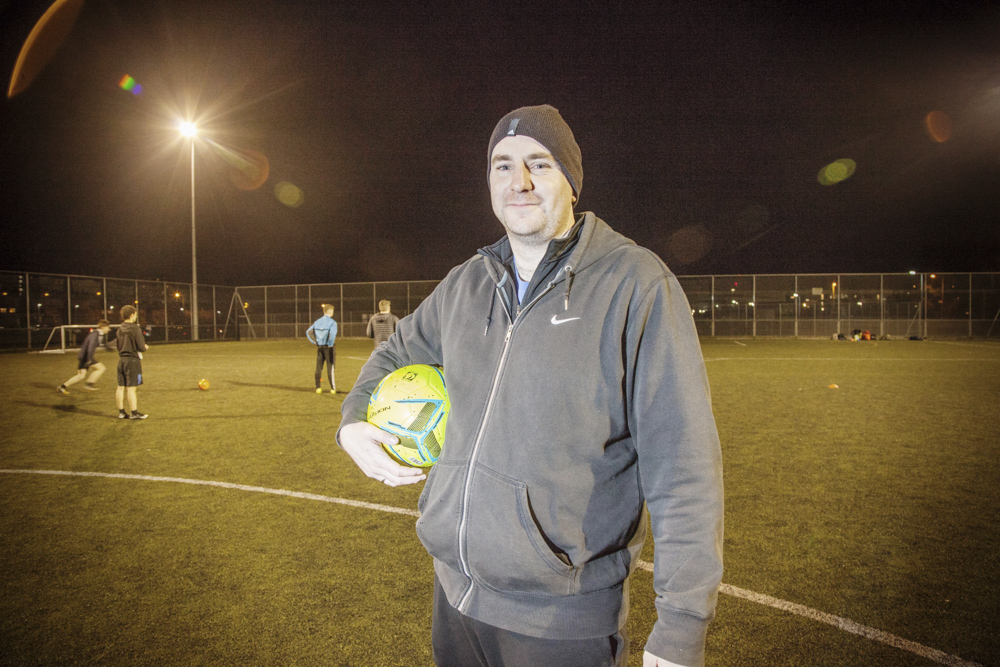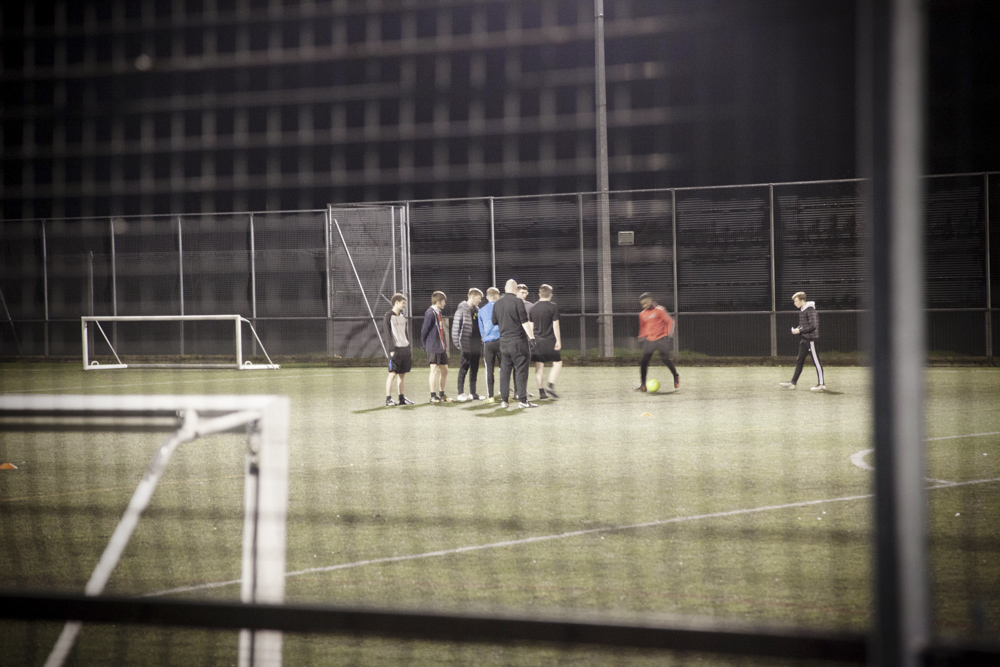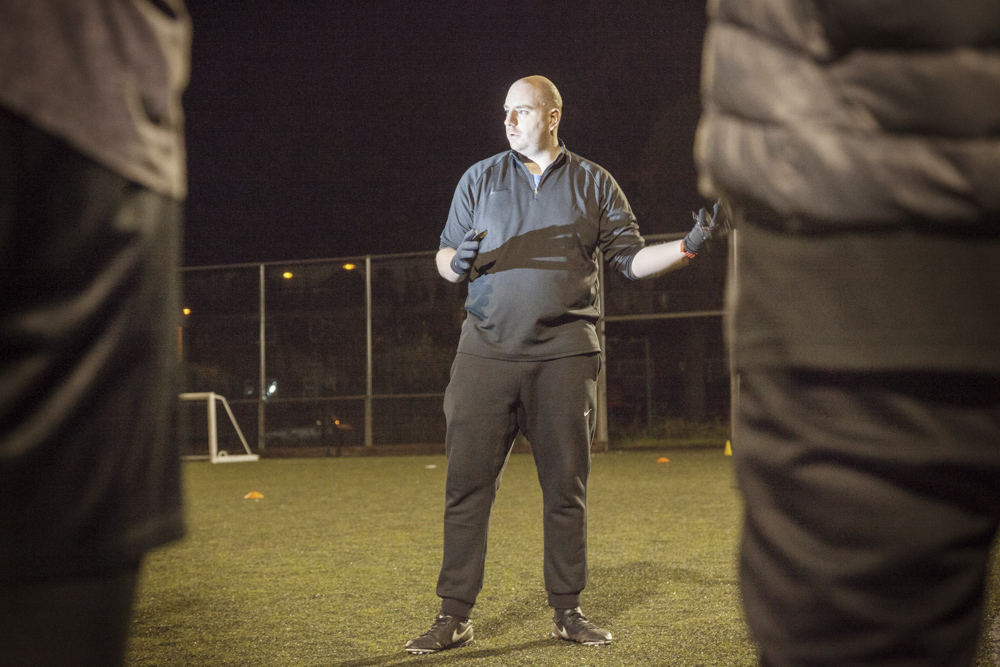Wednesday morning is usually set aside for collecting food for their ‘Collect and Go’ food bank but the volunteer with the transport is unwell today.
“Once we’ve brought it back to this office we’ll bag it up for distribution,” explains Mary. “I’ll have to try and pick it all up first thing tomorrow morning.”
Through African Voice in Moston (AVIM) Mary Stephens and a band of volunteers have been supporting local people in North Manchester for the past six years.
From little more than two upstairs rooms on the Shiredale Estate in Harpurhey, Mary and her team help with all types of issues faced by struggling families.
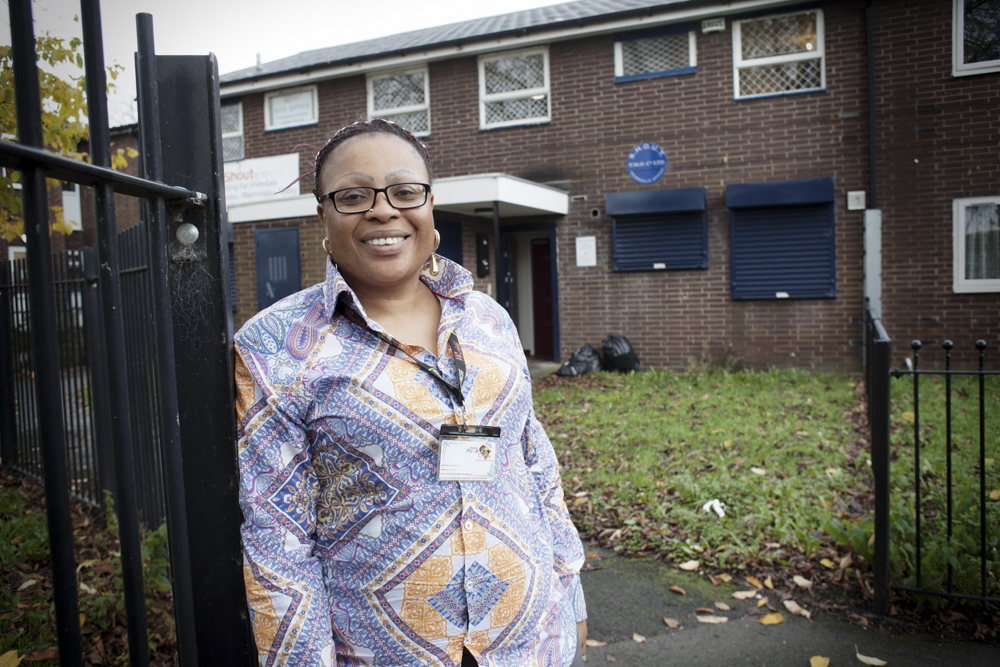 “With the weekly food bank we don’t just give out food,” she says, “we try and get to the root of the problem. When someone comes for the first time we will sit and talk about their situation. If, for instance, their benefits have stopped we can work with them to get them reinstated.”
“With the weekly food bank we don’t just give out food,” she says, “we try and get to the root of the problem. When someone comes for the first time we will sit and talk about their situation. If, for instance, their benefits have stopped we can work with them to get them reinstated.”
AVIM’s support ranges from job searching to language classes to homework clubs. Over the last year they’ve had support from Forever Manchester’s Fourteen programme to run training courses that help people get work.
“It all started when there were only a few African families in Moston,” recalls Mary. “There was no advice available to help people settle into the community.”
“And good information is so important,” I suggest.
“Newcomers were unable to interpret an unfamiliar system around schools, the benefit system and immigration rules,” she says. “They were making wrong judgements about the place.”
For the first three years Mary and her team had no office but would run drop-ins at the local health centre and youth club.
“What motivates you to want to help?” I ask.
Mary laughs. “Good question. I have the best of both cultures. I was born here but have African Heritage, so I can see things from both sides. I wanted to use that perspective to help people in the community.”
As a mother of five Mary moved from London to Manchester. She studied for a university degree while pregnant with her sixth child and still found time to volunteer for the Citizens’ Advice Bureau.
“If you set your heart to it, anything is achievable,” she says. “And I wanted to get that message across to young mothers. I worked with a group to encourage pregnant teenagers to do things with their lives. Having a child should not tie you down, anything is possible.”
“And now you use that determination to help the whole community,” I suggest. “It must be very satisfying. But you don’t just help people of African descent, do you?”
“It’s only a name,” says Mary emphatically. “We provide a service to anyone in the community who needs what we offer. I always stress that. But yes, we also deal with cultural issues that others agencies may feel ill-equipped to help with. We’re able to bridge the gap.”
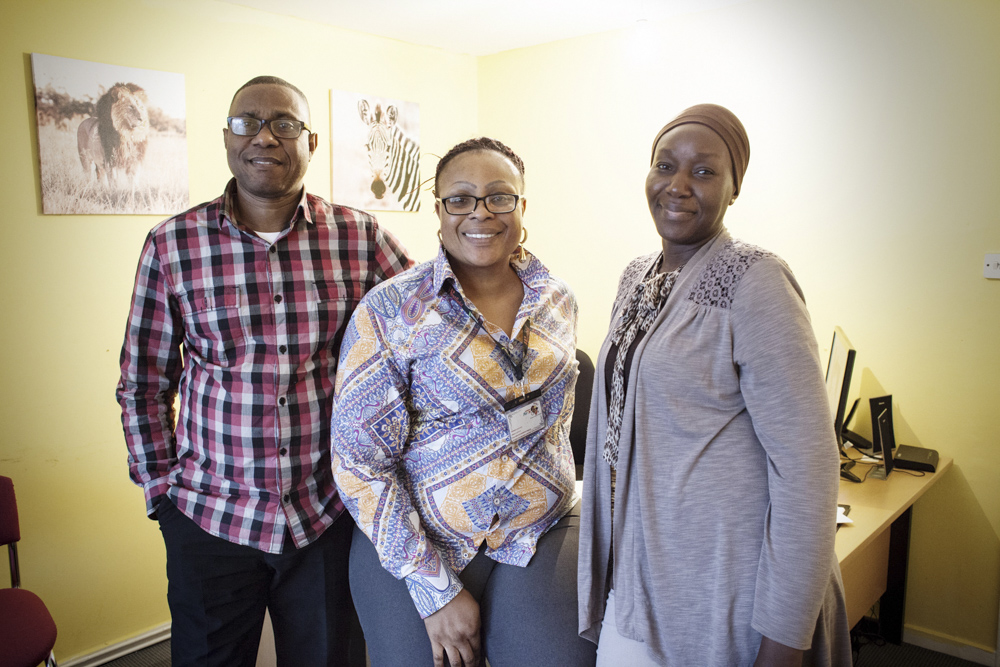 “And what of the future? I ask. “Where would you like this organisation to go?”
“And what of the future? I ask. “Where would you like this organisation to go?”
“We’re looking to expand,” says Mary. “We’d like to help even more people and get more volunteers on board. But we need a bigger place.”
She tells me of a building close by, owned by the Council, that has been unoccupied for a number of years. “We’d love to occupy that,” she says, “it’s on the ground floor, there are four rooms from which we could run activities. We’ve made some enquires and are waiting to hear back.”
“It sounds perfect,” I say. “Good luck.”
African Voice in Moston can be contacted on 07440775115 or 0161 312 1244, and through their website.
